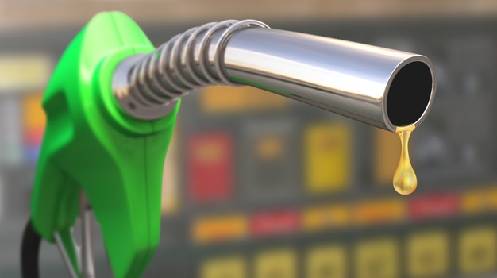The benefit for making diesel in Asia has dropped to the most reduced in nearly 12 months, a sign that the market is adjusting such a long ways to the European prohibition on imports of the vehicle fuel from Russia.
The net revenue, or break, on creating a barrel of gasoil, the structure block for diesel, at a commonplace Singapore treatment facility slipped to $22.05 a barrel on Feb. 17, the most minimal since Walk 16 last year.
The break is down 43% from its pinnacle up until this point this time of $38.89 on Jan. 25, and is likewise 69% underneath its record high of $71.69 from June last year, arrived at in the result of Russia’s Feb. 24 attack of Ukraine.
As opposed to being driven by worries over the possible loss of Russian shipments of diesel, the market in Asia shows up more intelligent of progressing strength in diesel sends out from China and India. China is supposed to trade around 2.4 million tons of diesel in February, identical to around 643,000 barrels each day (bpd), as per information aggregated by Refinitiv Oil Exploration. This would be up from January shipments of around 1.78 million tons and 2.32 million in December.
China’s tremendous refining area has been sloping up throughput to create more fuel as homegrown interest bounce back following Beijing leaving its severe zero-Coronavirus strategy, which had prompted an easing back economy. Nonetheless, diesel request is slacking the development in fuel utilization as it requires greater investment for development activities to get rolling.
This implies China’s purifiers are possible creating more diesel than homegrown prerequisites, meaning they are probably going to trade the excess.
While the net revenue on diesel is contracting, it’s as areas of strength for yet notable norms, having seldom exchanged above $20 a barrel among 2014 and the finish of 2021. In any case, it’s important that fuel in Asia is at present stepping an alternate way to diesel, to a great extent since China is sending out less.
China products of fuel have been declining lately as homegrown interest recuperates, and Refinitiv has followed around 300,000 tons such a long ways in February, well underneath the 625,000 tons in January and December’s 1.9 million tons.
The overall revenue on creating a barrel of fuel from Brent rough in Singapore finished at $11.94 a barrel on Feb. 17.
While this is beneath the pinnacle such a long ways in 2023 of $18.32 a barrel, the break has been on an upturn since its 2022 low of a deficiency of $4.66 a barrel on Oct. 26.
The benefit for making diesel is likewise been hit by progressing strength in sends out from India, as most would consider to be normal to transport around 2.0 million tons of diesel in February, like January’s 2.01 million, albeit the day to day rate is probably going to be higher given February just has 28 days.
The effect of the European Association restriction on imports of Russian oil items, which happened on Feb. 5, should be visible in India’s commodities, which are progressively moving toward the West of Suez markets in Europe and Africa.
Practically 88% of India’s February diesel sends out are traveling West of Suez as purifiers on the nation’s west coast exploit the hole left by Russian diesel leaving Europe.
It additionally gives the idea that Russia is as yet ready to track down purchasers for its diesel, notwithstanding losing its greatest market as Europe used to purchase around 500,000 bpd of Russian diesel preceding the conflict in Ukraine.
One new road of exchange is Center Eastern nations, for example, the Assembled Bedouin Emirates and Saudi Arabia purchasing Russian diesel, probably going to use in their homegrown business sectors, consequently permitting them to trade privately created fuel that is consistent with European and other Western approvals.
Center East imports of Russian diesel are supposed to hit a record high of 338,000 tons in February, or very nearly multiple times the pre-attack normal of around 43,500 tons every month, as per Refinitiv information.
Generally speaking, the message from actual oil items markets is that they can adjust and adapt to the disturbances brought about by the re-arrangement of Russian commodities.
This like has previously been found in the unrefined petroleum market, where China and India successfully supplanted Europe and other Western purchasers, and were glad to take the limits presented by Russia as Moscow looked to continue to procure income from its energy sends out.
The inquiry is whether all the rearranging of the exchange oil items like diesel slice the progression of money to Russia by enough to be considered a triumph by Western states, or whether the genuine recipients are the brokers and purifiers who adjust best.






